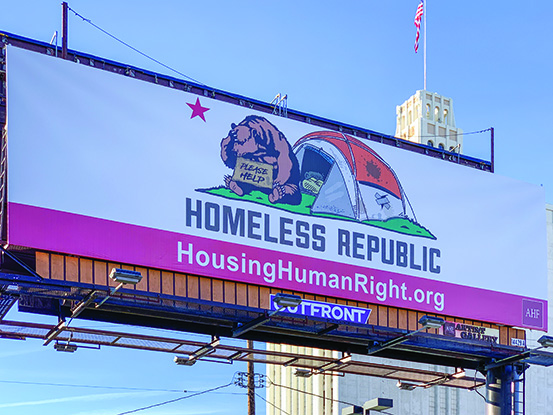Homelessness in California: Are High Rents the Problem?

By Frank Gallo, Member, Apartment Association of Greater Los Angeles
A recently published study by the University of San Francisco on the California homelessness crisis concludes that the inability to pay rent was a major contributor to homelessness. In my opinion, the study is a good start but seems to be incomplete since it does not indicate for what reasons did those individuals stop paying their rent.
The survey and interviews used for the study attempt to identify the causes of homelessness while trying to understand why people remain homeless. Unfortunately, the study fails to address some major issues that are the intrinsic causes of the problem. What life crisis resulted in the individuals becoming unhoused? More importantly, how can we prevent those life crises that resulted in people becoming homeless? Creating housing for the now homeless would not prevent them from going back to the streets or prevent others from becoming homeless, it would just make the problem popular with politicians and well-paid non-profit organizations that continue to perpetuate it.
According to the University of San Francisco study, about “two thirds of homeless adult individuals battle alcohol or drug addiction.” The study indicates that these individuals use drugs or alcohol to cope with homelessness, but it does not indicate if they became addicted to drugs or alcohol after becoming homeless or became homeless because of their addiction. This distinction is tremendously important because either of these addictions would result in insufficient income, health problems, irresponsible or violent behavior, and job losses.
The study further indicates that 56% of adult homeless had serious mental issues that resulted in hospitalization prior to becoming homeless, and about 82% of those interviewed reported that there was a period in their lives where they experienced a serious mental condition. The study states that 66% of the study participants acknowledged present mental conditions. If we take into consideration that the use of drugs and/or alcohol can exacerbate the symptoms of mental illness, it might be quite possible to establish a direct relationship between mental disease, use of drugs and alcohol, and homelessness.
Some study participants describe rent as “tremendously expensive,” yet the ratio of rent versus income was not an issue for those individuals who were on a month-to-month lease when they became homeless. A desirable rent ratio should be under 30% and for those renters the ratio was 21%, “$200 rent / $950 of income,” when they became homeless. The study points out that 36% of (non-institutionalized) individuals that became homeless had a lease prior to becoming homeless, and factors such as family crises, domestic violence, or incarceration had taken them into a downward pattern that resulted in homelessness.
The study does not indicate; however, if drug or alcohol addiction, or mental health issues were the intrinsic factor that caused those problems but found that 46% of adults in families “decreased a lot the use of substances” after becoming homeless. Are we to understand that those individuals in families were using drugs prior to becoming homeless, and if that was the case, what incidence did the use of drugs play in their becoming homeless? Accordingly, we need to understand the incidence of mental disease and the use of drugs and alcohol as a factor that can result in someone losing the very roof over his or her head, before we conclude that high rents are a major cause of homelessness. Furthermore, we need to acknowledge that most people are not prepared to deal with related or unrelated people with mental health or addictions.
Addiction, mental illness and abuse are major factors leading individuals into crisis situations such as job loss, health predicaments and isolation, that disconnects these individuals from family members and support systems, and ultimately drops them into the downward spiral of becoming unhoused. It’s not the rent, but the drugs, booze and mental illness, and no matter how low annual rent “caps” become or the amount of tenant protections that are imposed on rental property owners, there is no stopping the crisis. Solve addiction and mental illness, and there will be a solution to the homelessness crisis.
Frank Gallo has a Masters of Business Administration with an emphasis in Finance from the California State University, Los Angeles, and he has worked as a Financial Planner for approximately 30 years. He has owned rental properties for the past approximately 25 years and is the past President of the Glendale Coalition for Better Government. Mr. Gallo is a member of the Apartment Association of Greater Los Angeles.



